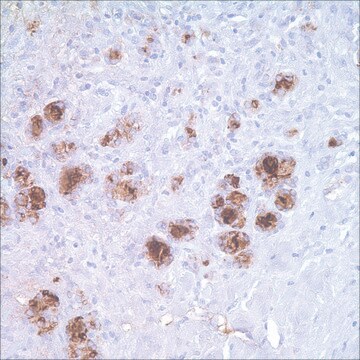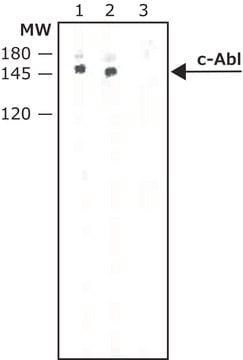487R-9
SMAD4 (MRQ-72) Rabbit Monoclonal Antibody
Synonym(s):
Mothers Against Decapentaplegic Homolog 4 Rabbit Monoclonal Antibody
About This Item
Recommended Products
biological source
rabbit
Quality Level
antibody product type
primary antibodies
clone
MRQ-72, monoclonal
description
For In Vitro Diagnostic Use in Select Regions
packaging
vial of 0.1 mL concentrate (487R-94)
vial of 0.1 mL concentrate (487R-94-RUO) Research Use Only
vial of 0.5 mL concentrate (487R-(95)
vial of 1.0 mL (concentrate (487R-96))
vial of 1.0 mL concentrate (487R-96-RUO) Research Use Only
vial of 1.0 mL pre-dilute (487R-97-RUO) Research Use Only
vial of 1.0 mL pre-dilute ready-to-use (487R-97)
vial of 7.0 mL pre-dilute ready-to-use (487R-98)
vial of 7.0 mL pre-dilute ready-to-use (487R-98-RUO) Research Use Only
manufacturer/tradename
Cell Marque™
isotype
IgG
control
pancreas
visualization
cytoplasmic, nuclear
General description
Quality
RUO - MQ100
Physical form
Preparation Note
Note: This requires a keycode which can be found on your packaging or product label.
Other Notes
Legal Information
Not finding the right product?
Try our Product Selector Tool.
Storage Class Code
12 - Non Combustible Liquids
WGK
WGK 2
Certificates of Analysis (COA)
Search for Certificates of Analysis (COA) by entering the products Lot/Batch Number. Lot and Batch Numbers can be found on a product’s label following the words ‘Lot’ or ‘Batch’.
Already Own This Product?
Find documentation for the products that you have recently purchased in the Document Library.
Our team of scientists has experience in all areas of research including Life Science, Material Science, Chemical Synthesis, Chromatography, Analytical and many others.
Contact Technical Service








